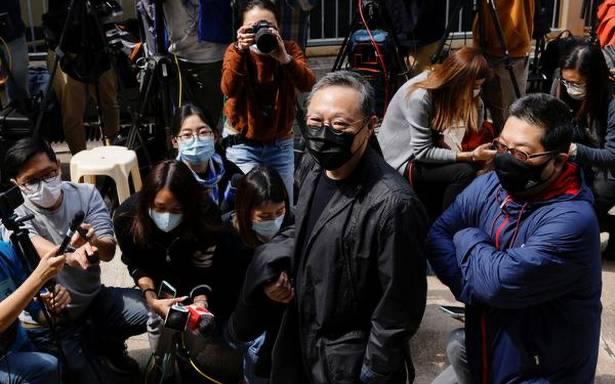
Hong Kong police have charged a group of 47 prominent dissidents with “conspiracy to commit subversion.”
It is the single largest use yet of Beijing’s controversial, sweeping national security law against the city’s democracy movement.
The 47 charged on Sunday were among more than 50 pro-democracy activists arrested by police in January. Those detained in the crackdown had links to an unofficial primary election organized by pro-democracy parties ahead of a since-postponed legislative election. They were later released.
Eight of the activists involved in that case were not charged, according to a report in the Hong Kong-based newspaper South China Morning Post.
The National Security office had ordered some of those arrested in January to report to local police stations in Hong Kong at 2 p.m. local time.
The activists are scheduled to appear in court on Monday morning, Hong Kong police said in a statement. They include 39 men and eight women aged between 23 and 64.
The activists charged on Sunday represent a broad cross section of Hong Kong’s opposition.
They include veteran former pro-democracy lawmakers such as James To and Claudia Mo as well as academics, lawyers and social workers. Those also called in by Hong Kong police include a group of younger “resistance camp” democratic activists including Lester Shum, Sam Cheung, Ventus Lau and Fergus Leung.
Joshua Wong, one of the Hong Kong pro-democracy movement’s most high-profile campaigners was charged. He is already in jail.
Hong Kong’s national security law draws condemnation –
Beijing imposed the legislation in June 2020 after large swaths of the population hit the streets in 2019 in huge and sometimes violent pro-democracy protests.
The law criminalizes acts deemed to be subversion, secession, terrorism and collusion with foreign forces. Those charged are routinely denied bail until trial and face up to life in prison if convicted.
The new law has drawn international condemnation for jeopardizing Hong Kong’s civil liberties enshrined under the “one country, two systems” framework, including freedom of speech and assembly.




